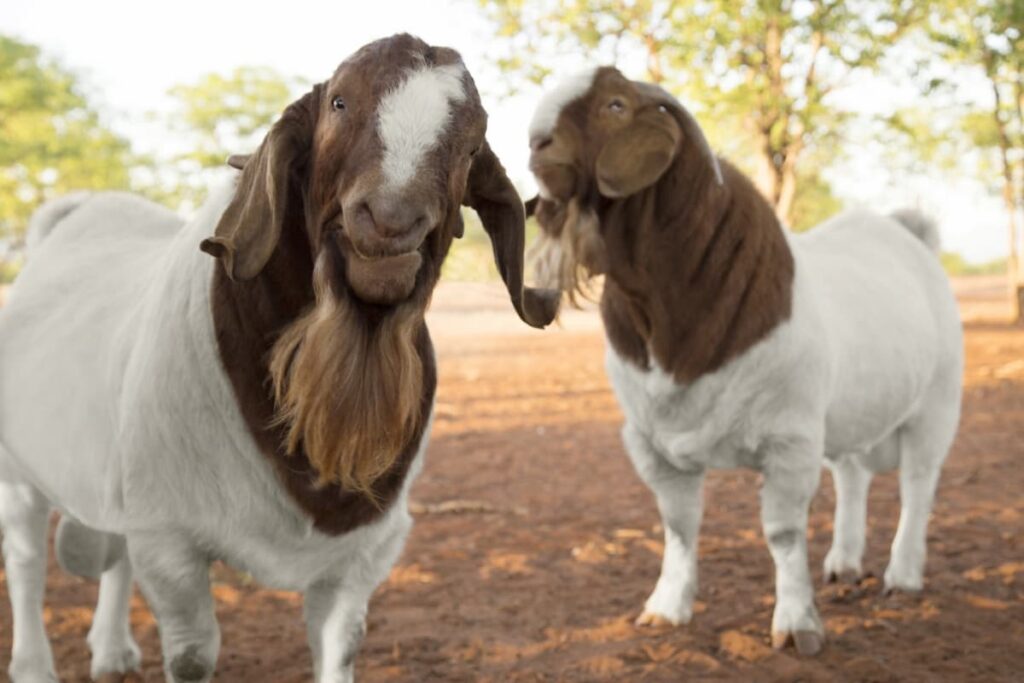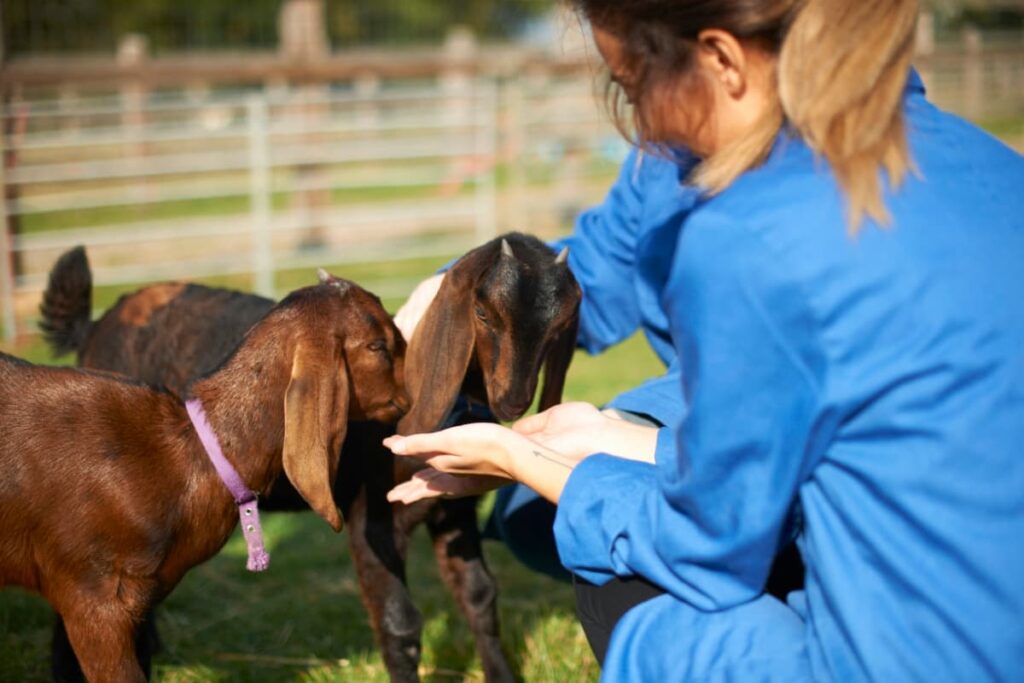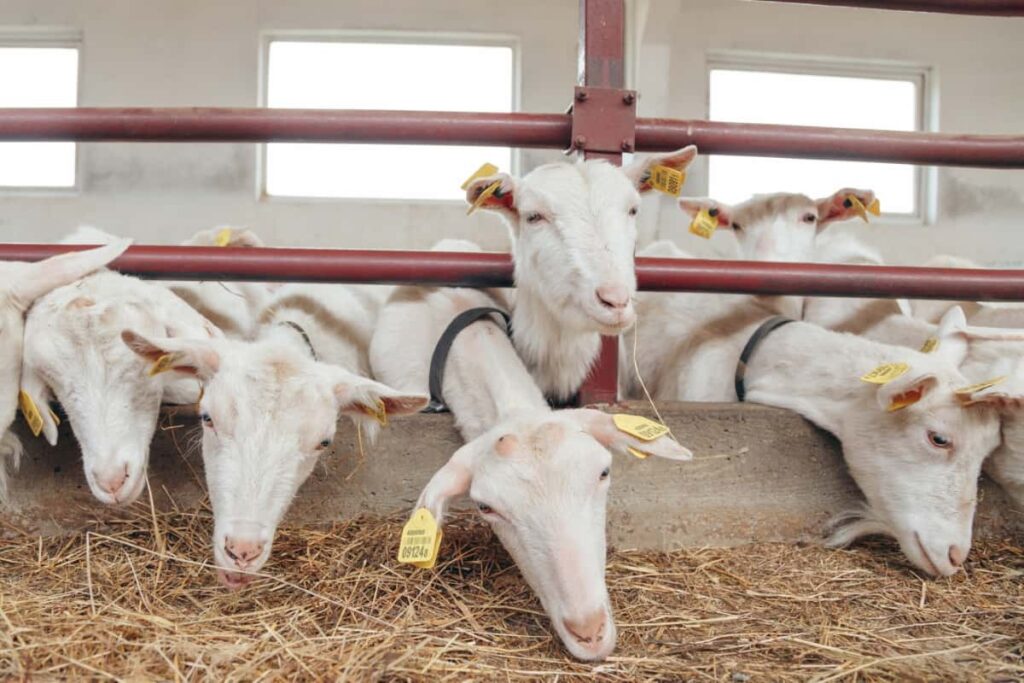Goats are not only adorable and fun animals to have around, but they also make great companions and can provide milk, meat, and fiber. When buying goats, you should decide on the purpose of owning a goat. Goat farming is lucrative, environmentally friendly, sustainable, and an excellent source of healthy food products.

Goat Buying Tips
- Ensure that you have enough space and resources to accommodate your new goat. Goats require adequate grazing areas and shelter from harsh weather conditions.
- It’s important to research the different breeds of goats available as they each have unique characteristics suited for different purposes.
- Before buying a goat, ensure they are healthy and free from diseases or illnesses by thoroughly examining them and asking about their veterinary history.
- Set a budget before purchasing your goat, as prices vary depending on breed and age. It’s also worth considering additional costs such as feed, vet bills, and equipment needed for caring for your new pet.
- Next, take into account the age and gender of the goat. Older goats may have more health issues and be less productive than younger ones. As for gender, male goats (bucks) can be aggressive during the breeding season, so if you want to avoid this, opt for female goats (does).
- It’s also important to inspect the overall health of the potential goat before making a purchase. Look for clear eyes and nose, healthy hooves, and skin conditions.
- Some breeds require more room than others, so select one that fits your limitations.
- Next, think about which breed will best suit your needs. Each goat breed has unique characteristics that make them suitable for specific purposes.
- Always go for healthy ones free from illnesses or injuries when buying goats. Look for signs such as lethargy or excessive eye and nose discharge that may indicate underlying health issues.
Best Time of Year to Buy Goats
When it comes to buying goats, timing is everything. The best time to buy goats depends on your specific needs and goals. If you’re looking to breed your goats, late August through early January is typically the ideal time, as they are in their breeding season. You’ll want to ensure that any you purchase during this period have not already been bred unless you specifically want them for that purpose.
Where to Buy a Goat?
- One option for buying goats is to look for local breeders or farmers with goats available for sale. This can be beneficial to get healthy, well-cared-for animals from people with experience in raising them.
- Another option is to attend goat auctions or sales events. These can be great to meet other goat enthusiasts and see a variety of breeds and ages up close. It’s important to research beforehand and know what you’re looking for so you don’t get caught up in the event’s excitement and make an impulsive decision.
- There are also online marketplaces specifically designed for buying and selling livestock like goats. While this can be convenient, it’s important to take extra precautions when buying sight unseen over the internet, such as asking plenty of questions about health history and living conditions before committing to a purchase.
In case you missed it: Goat Breeding and Genetics for Improved Productivity and Disease Resistance

How Much Does a Goat Cost?
The price of a goat can vary depending on various factors like age, breed, gender, and location. You can pay about $75 and $200 for a healthy goat.
Another thing is that the cost of goats may fluctuate depending on the season. Generally, prices tend to be higher during the breeding season (fall through early winter) when demand is at its peak.
Selection Criteria for More Goat Production
- Buyers should consider their livestock-raising experience, budget, and available resources. They should also research the various breeds of goats to determine which ones are best suited for their specific climate and terrain.
- In selecting individual goats, potential buyers should pay close attention to each animal’s overall health and temperament. Choosing goats free from any obvious signs of illness or injury is important, as these problems can quickly spread throughout a herd.
- Whether you’re looking for milk production or want some friendly companions on your farm or homestead, carefully selecting the right goats can make all the difference in your success and satisfaction as a goat owner.
- It’s also crucial to check local regulations regarding owning livestock before purchasing any goats. Some areas prohibit keeping farm animals within city limits or require specific permits.
- Choose reputable sellers who can provide healthy animals with proper vaccinations and records of medical history.
- Next, look at the goat’s overall health and condition. Check for signs of illness, such as discharge from the eyes or nose, limping, or a dull coat. A healthy goat will have bright eyes and clean ears.
- Pay attention to temperament as well. Some goat breeds can be more aggressive compared to others and may not be suitable if you have children around.
- Consider the age of the goat too. While baby goats (kids) can be cute and irresistible, they require more care and attention than older animals. Older goats may already be trained to lead on a leash or stand still while being milked.
- You must have enough space for your new goats. They need room to graze and exercise, so ensure your property has adequate fencing before bringing them home.
Most Demanding Goat Breeds
- One of the most popular goat breeds is the Boer goat. These goats are known for their muscular build and fast growth rate, making them a great choice for meat production.
- Another common breed is the Alpine goat. This is known for its high milk production and can produce up to 1 gallon daily.
- Nigerian goats are small in size but pack a lot of personality. They’re often kept as pets or used for milk production due to their rich and creamy milk.
- Saanen goats are another popular dairy breed due to their high milk yields. They’re also known for their friendly personalities and calm demeanor.
- For those interested in fiber production, Angora goats are a great option. Their long, curly locks produce mohair which can be spun into yarn or used for other textile products.
In case you missed it: A Guide to Small-Scale Rural Goat Farming: Tips, Tricks, and Best Practices

Conclusion
Goats can survive in various climates and environments. There are many reasons to add goats to your farm, whether you are looking for additional milk production, fiber for clothing or other products, or want to have fun keeping these adorable animals. Different goat breeds are better suited for different purposes, such as milk production or meat. This will determine which breed is best suited for your needs.
- Goat Milking Practices and Equipment: A Beginner’s Guide
- Goat Farming for Fiber: Producing Mohair and Cashmere
- Maximizing Goat Milk Production: Tips for Dairy Goat Farmers
- Goat Farming as a Family Business: Strategies for Success
- Profitable Kenya Goat Breeds for Commercial Dairy and Meat Business
- Unlock the Secrets of Oberhasli Goat: Discover Raising and Management Practices
- Ultimate Guide to Myotonic Goats: Explore Profile to Raising
- Unlock the Secrets of Rove Goat: Discover Management Practices
- Ultimate Guide to Malwa Goat: Explore from Origin to Management Practices
Good information .Thanks for the nice information.